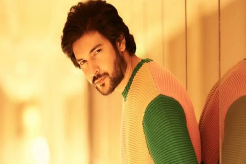While good looks are important in the industry, talent is paramount says actor Shivin Narang who was last seen in Tamannah Bhatia starrer Aakhri Sach and is part of the upcoming film Dunk. He adds that it is important to work on what you do, rather than focus all your energy on how you look.
“I believe that if we’re talking about conventional looks, it certainly gives you an initial advantage. People are biologically inclined to notice and pay attention to those who fit certain aesthetic standards. However, in the long run, I truly believe that talent is the only thing that will propel you forward. Today, whether we’re talking about actors, influencers, or YouTubers, it’s not always about being the best-looking person. Instead, it’s their talent, courage, and willingness to advance that make them successful and popular, far beyond mere good looks,” he says.
The debate between looks vs talent has been ongoing for years, with luck also playing a major role in securing opportunities, he says, adding, “I feel that, regardless of the platforms, competition has always been present, whether we look at stories from the 1970s, 1990s, 2000s, or the present. Each era has its own kind of competition. Achieving success or staying on top is never without competition and it’s a constant reality. This ongoing competition, however, is also what pushes us to improve and get better with each passing day and each new round.”
Talking about the bias that exists in the industry, he says, “I feel favoritism and nepotism both exist, and I don’t think they guarantee anything. Favoritism can stem from various factors, such as prior good work, goodwill, or ethics. If favoritism arises due to certain positive attributes, it’s not necessarily a bad thing. Ultimately, what matters more in the industry is trust and reliability, as well as collaborative team effort. Everyone wants to be someone’s favorite or be on the favorite list, and there’s nothing inherently wrong with that.”
Shivin also talks about losing opportunities in career, but believes it’s often a matter of destiny. “Losing an opportunity can be viewed from many perspectives. Sometimes, you might pass on a project due to creative differences or other reasons, only to see it become a big success later, leading to regret. Conversely, if a project you passed on turns out to be a failure, you might feel relieved. Ultimately, I believe losing an opportunity is often a matter of destiny. You make decisions based on your heart and what feels right at the moment, but the outcome is uncertain. There are many such moments, but I’m proud of my decisions and where I am now,” he tells us.



